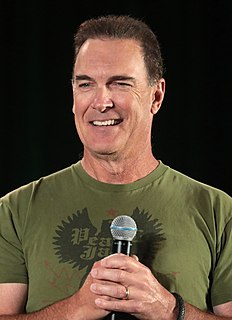A Quote by Allen W. Wood
I could identify for virtually every important figure in the history of modern continental philosophy an idea (or more than one) absolutely central to that philosopher's thought, whose original author was Fichte.
Related Quotes
One could say that what differentiates ancient from modern philosophy is the fact that, in ancient philosophy, it was not only Chrysippus or Epicurus who, just because they had developed a philosophical discourse, were considered philosophers. Rather, every person who lived according to the precepts of Chrysippus or Epicurus was every bit as much a philosopher as they.
The so-called Philosophy of India is even more blowsy and senseless than the metaphysics of the West. It is at war with everything we know of the workings of the human mind, and with every sound idea formulated by mankind. If it prevailed in the whole modern world we'd still be in the Thirteenth Century; nay, we'd be back among the Egyptians of the pyramid age. Its only coherent contribution to Western thought has been theosophy-and theosophy is as idiotic as Christian Science. It has absolutely nothing to offer a civilized white man.
I have always taken as the standard of the mode of teaching and writing, not the abstract, particular, professional philosopher, but universal man, that I have regarded man as the criterion of truth, and not this or that founder of a system, and have from the first placed the highest excellence of the philosopher in this, that he abstains, both as a man and as an author, from the ostentation of philosophy, i. e., that he is a philosopher only in reality, not formally, that he is a quiet philosopher, not a loud and still less a brawling one.
Oddly, since by now I've written quite a lot on early modern philosophers, I didn't care for the history of philosophy, which I thought dull and obscure, until I got a minor job writing articles for a children's encyclopedia in the history of science and began to make connections between science and philosophy.
It is actually a nice question how far Descartes himself endorses the monological and metaphysically dualistic theory of mind associated with his name and his legacy in early modern philosophy. But Fichte does reject this tradition, by suggesting that an immaterial thinking substance is an incoherent notion, and a rational being whose rationality was not developed through communication with others is a transcendental impossibility.
I am opposing it with an idea of the history of philosophy as a history of philosophers, that is, a history of mortal, fragile and limited creatures like you and I. I am against the idea of clean, clearly distinct epochs in the history of philosophy or indeed in anything else. I think that history is always messy, contingent, plural and material. I am against the constant revenge of idealism in how we think about history.
People don't understand this: Ideas are important, but they're not essential. What's essential and important is the execution of the idea. Everyone has had the experience of seeing a movie and saying, "Hey! That was my idea!" Well, it doesn't mean anything that you had that idea. There's no such thing as an original concept. What's original is the way you re-use ancient concepts.































